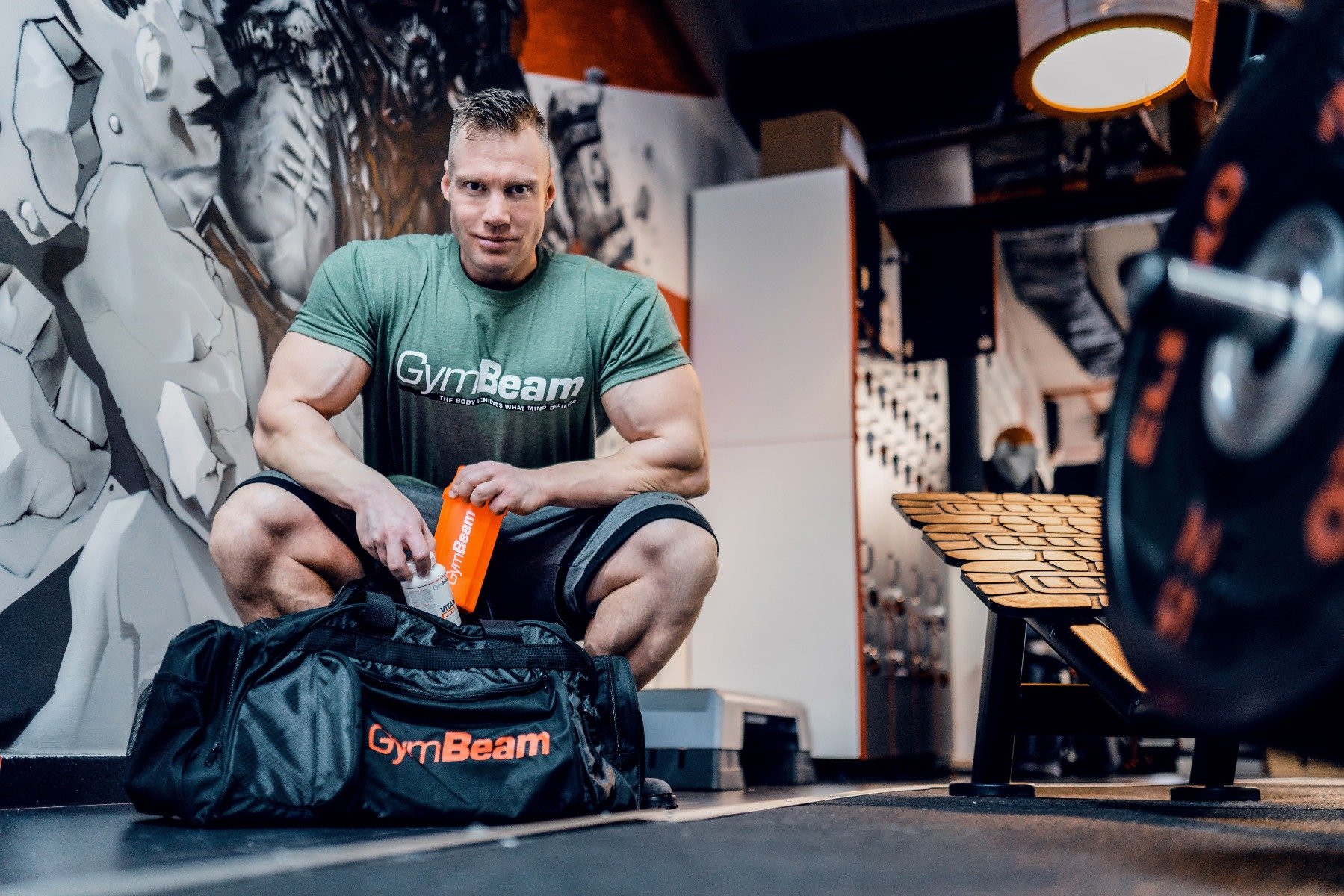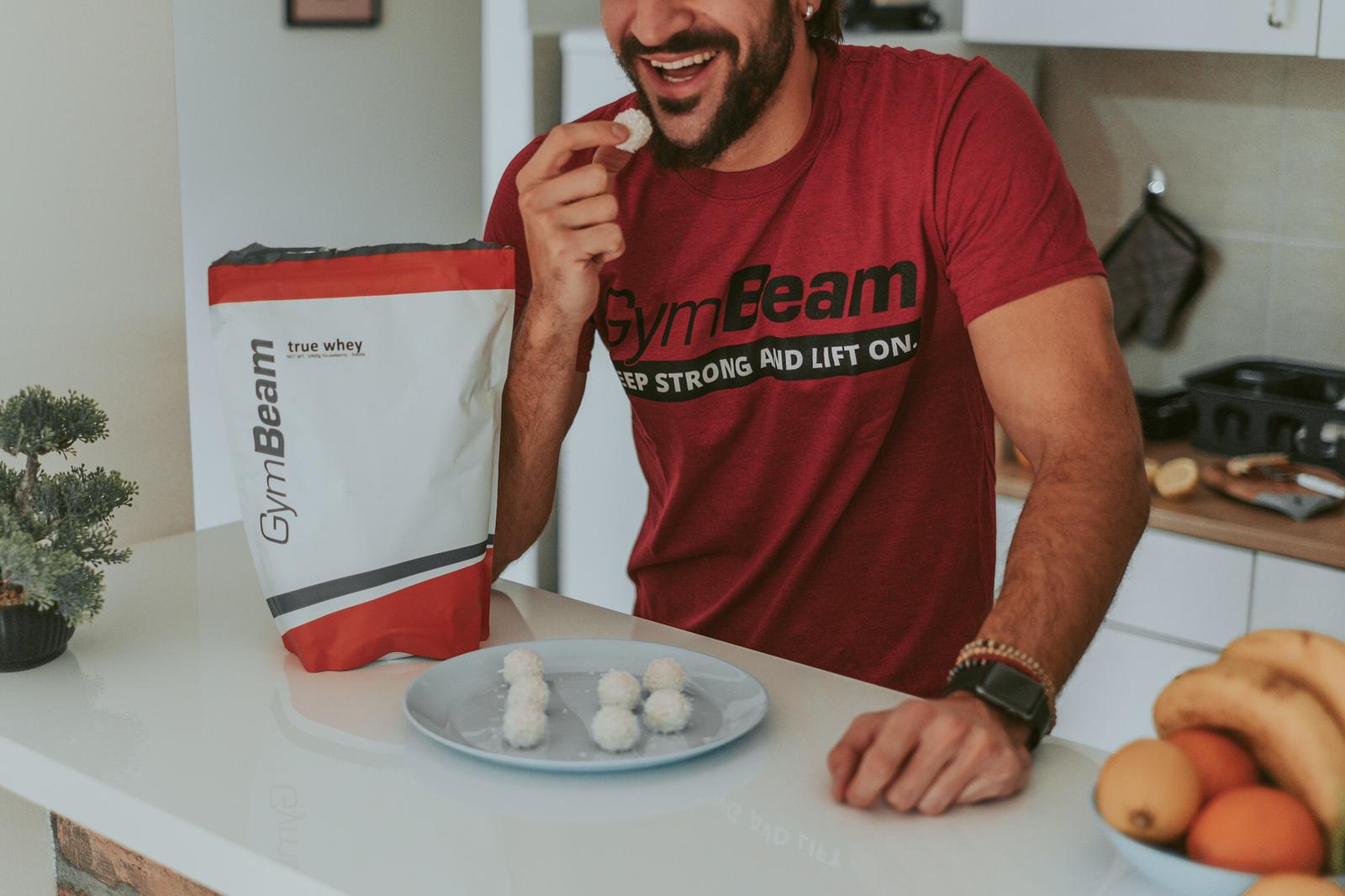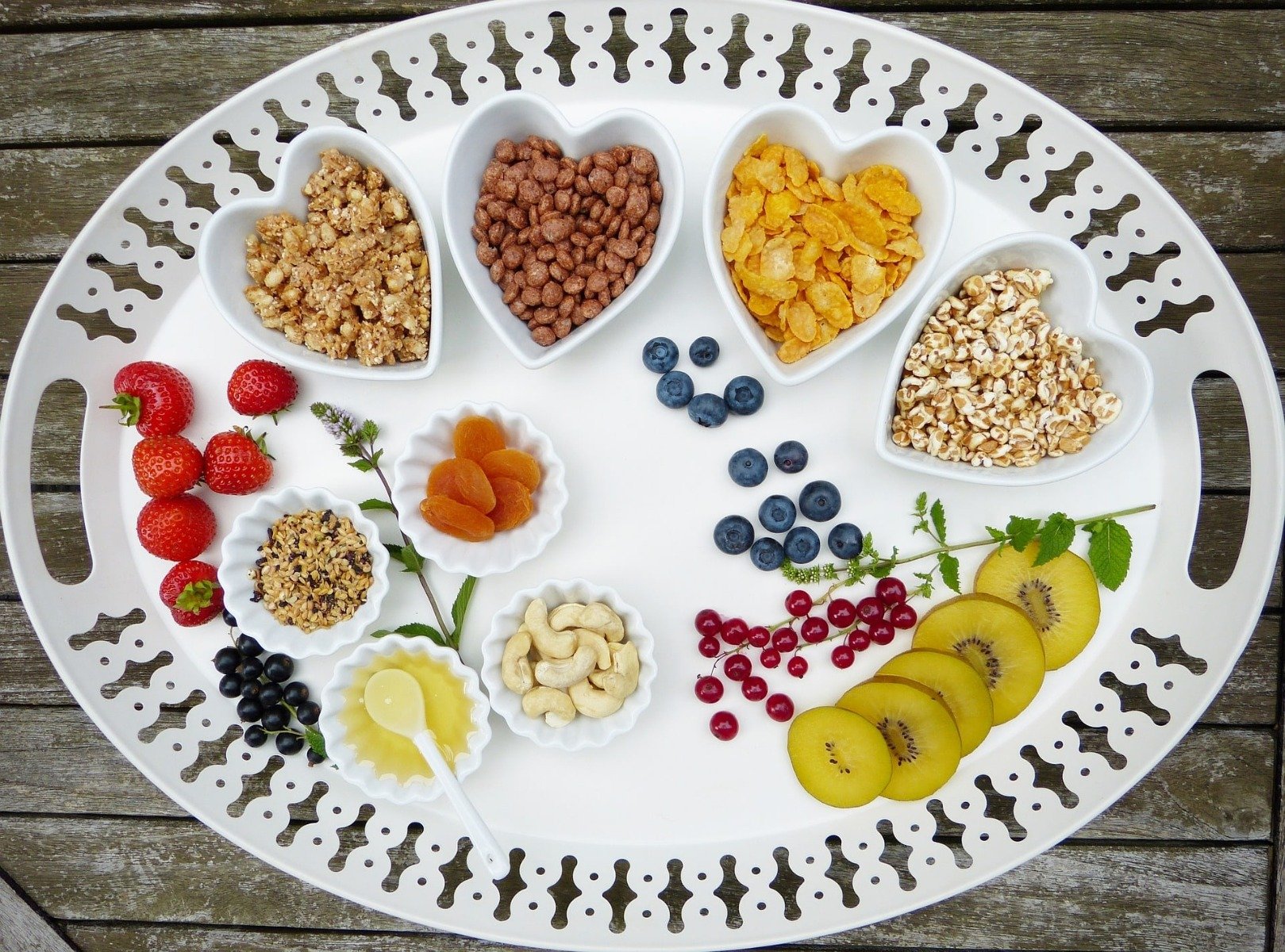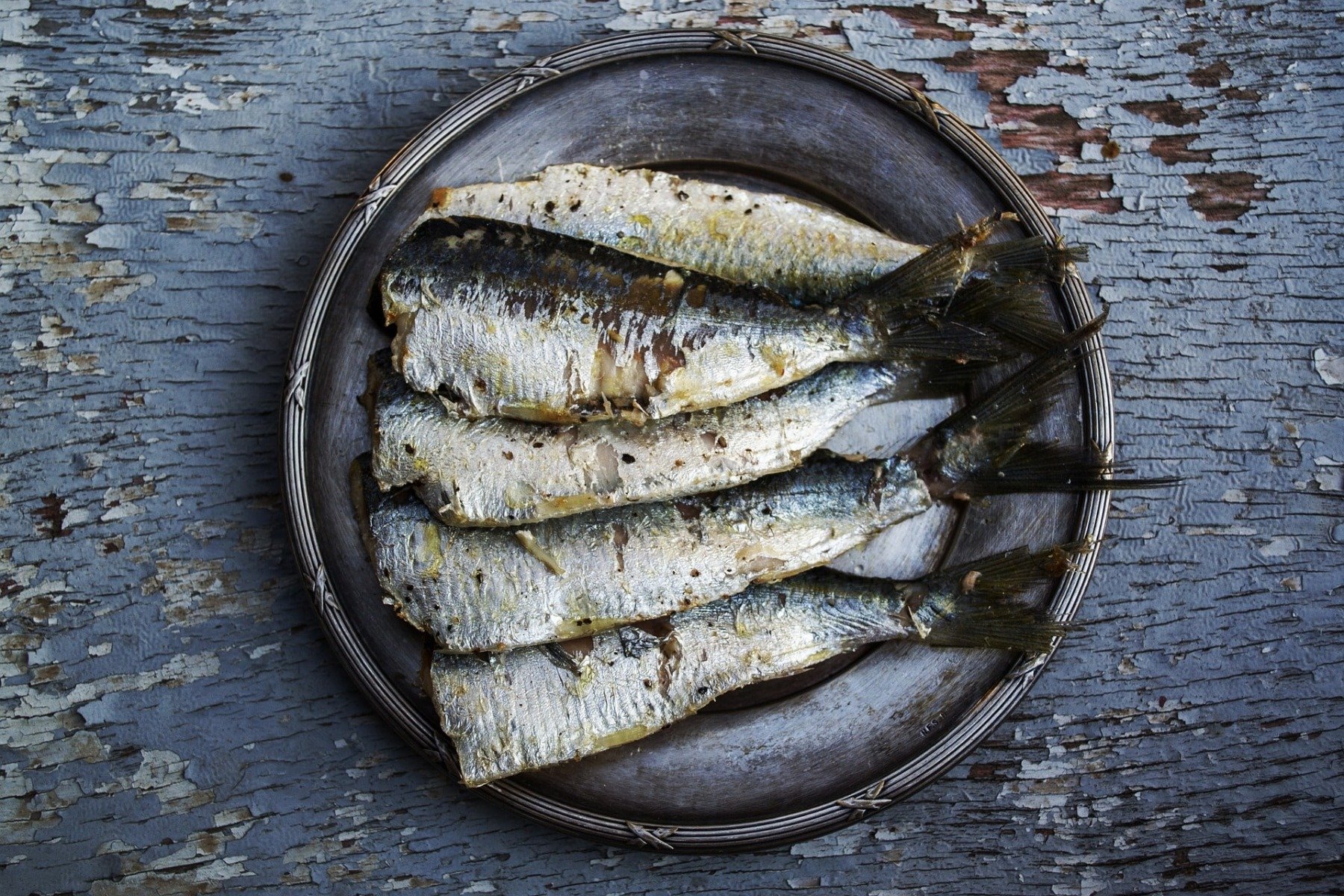Table of Contents
Before and after exercise, you should consume enough food and drink enough fluids, especially to keep your blood glucose levels above normal. This will help you maximize your performance and reduce muscle regeneration time. However, as it is said, hunger is thirst in disguise, and to some extent this also applies during the exercise. It is essential to stay hydrated!
Taking Enough Fluids is Essential
It really is true. Taking enough fluids is essential for the proper functioning of your muscles and whole body. If you are properly hydrated, your body will provide an optimal indoor environment for achieving the best results. When you exercise, your body loses high amounts of water, important electrolytes and nutrients. This can quickly lead to dehydration and all the dangers connected with it. [1] For more information on the importance of taking enough fluids, read our article Hydration before, during, after training and how to avoid dehydration.

What to Eat Before a Workout?
Many people and athletes neglect the intake of any food before a training. They think they do not need it and achieving lean muscles or weight loss will be easier without it. However, they do not realize that if they do not receive enough nutrients before any kind of physical activity, they may suffer from dizziness, nausea or lethargy. Exactly skipping food before training can increase the probability of injury. Proper nutrition before exercise will help you not only maximize performance but also minimize muscle damage. [3]
However, it is important to know what you should eat. Supplying nutrients before exercising will give you the energy and strength you need for a better training. Each macronutrient has a specific role, so let’s look at what carbohydrate, protein, and fat consumption does to your body before working out. [2] [3]

You might be interested in these products:
1. Carbohydrates
Carbohydrates = energy. When we exercise, our muscles and liver use as the source of energy glycogen which is the glucose stored in our body. It is the carbohydrates that convert to glucose in the muscles. By increasing the amount of glycogen, you should be able to train longer and harder, which will help you build more muscle mass. However, supplies of glycogen in muscles are limited, and when they are depleted, your performance and intensity of exercise will decrease. Therefore, carbohydrate consumption before any physical activity really is crucial. [4] [5]
Carbohydrate intake thus effectively supports your performance and helps in muscle mass regeneration. The fact that you need carbohydrates only when you are involved in an endurance training is really a myth. In fact, carbohydrates can improve also short-term, high-intensity workouts. [5]
Another great benefit of taking carbohydrates before a training is the fact that they stimulate insulin release. In combination with protein, they improve protein synthesis and prevent their breakdown. Simply put, if you take carbohydrates before your workout, your body will be boosted with energy and your performance in the gym will be more satisfactory, making muscle mass gain much easier. [5] [6]
2. Protein
The moment you start doing a weight training and lifting heavy weights, you put your muscles under a huge pressure that can damage them. Your muscles need protein in order to be repaired and regenerated effectively. These are sources of amino acids that promote muscle regeneration and effectively help repair damaged muscle tissues. [7]
There are also many other benefits of taking protein before a training. Several studies have even confirmed that protein consumption immediately before a training helps to increase muscle mass and reduce fat. It has also been shown that taking protein prior to exercise increases muscle protein synthesis. Their consumption also causes a better anabolic response to muscle growth. [3] [7] [8]

3. Fats
Many people avoid fat intake in the misconception that all fats are bad. However, the opposite is true, because there are also healthy fats that our body needs for better functioning of the organism. These include foods containing omega-3 fatty acids found in fish or nuts. In addition, fats can help slow down digestion and so they maintain optimal blood glucose and insulin levels. They also provide some important vitamins and minerals that are essential for every person. [9] [10]
The Key is the Correct Timing of the Pre-Workout Meal
The timing of your meal is an important aspect of the body’s nutrition before exercise. However, it is individual for each person when he should eat before training. If you would like to maximize the results of your workout, try to consume food containing all macronutrients 2 to 3 hours before exercise. If you tend to eat 45 to 60 minutes before training, choose foods that are easy to digest. This will help prevent discomfort in the stomach during exercise. [3] [11] [13]
Therefore, the ideal time to eat is from 30 minutes to 3 hours before training. However, it is individual for each athlete. Initially, you will need to experiment to find out in what time frame is your body able to digest food before training. If you prefer morning workouts, you may not be able to eat a full meal before going to the gym. You should therefore be satisfied with a small snack in form of fruit or breakfast consisting of easily digestible ingredients. [3] [11] [12] [13]

Examples of Pre-Workout Meals
Many people who are interested in what they should eat before training are looking for inspiration for specific foods on the Internet. We have prepared for you a list of recommended foods and their main benefits from taking them before training. [3]
- Fruit – is full of simple carbohydrates, natural sugars and potassium. This helps prevent muscle cramps during exercise.
- Peanut Butter – these are healthy fats that have a high content of antioxidants, proteins, fibre, vitamins and minerals.
- Wholemeal pastry – contains a complex of carbohydrates with a low content of sugar.
- Chicken thighs, rice and steamed vegetables – a combination that connects proteins and complex carbohydrates. Dark meat from chicken thighs contains more “good fat” than for instance meat from chicken breasts.
- Oatmeal – complex carbohydrates in oatmeal decompose slowly in your digestive system, which means that they give you more long-lasting energy.
- Eggs – are full of high-quality proteins and contain all 9 essential amino acids. And exactly they support muscle mass formation and its regeneration.
- Avocado – is full of healthy fats, antioxidants, vitamins and minerals.
- Protein smoothie – you get a decent dose of protein, fast digestible carbohydrates and healthy fats in one drink.
- Easily digestible proteins – we also recommend taking foods that are sources of easily digestible proteins, such as nuts, Greek yogurt, turkey meat, a glass of plain or soy milk. They promote muscle mass growth or regeneration and do not burden the stomach.

Pre-Workout Supplementation
To a certain extent, the correct supplementation is also responsible for the maximum performance in the gym. It can help you shape your body, burn fat or supply energy. Below we have prepared a list of nutritional supplements that are suitable to be taken before training: [2] [3] [14]
- Protein
Proteins are the main and key nutritional supplement for every athlete. They help to build muscle mass and effectively ensure its faster regeneration. In the absence of carbohydrates, they are also an excellent source of energy and support the body’s immunity.
- Creatine
Creatine is an organic acid that is naturally found in the human body and helps to supply muscles with energy. This promotes growth, strength and volume of the muscle mass.
- Beta Alanine
Beta Alanine is a non-essential amino acid that prevents formation of lactic acid during training which improves the athletic performance and reduces fatigue.
- Mass Gainers
Mass Gainers are carbohydrate products the main task of which is to supply muscles with glycogen stocks. They are designed to promote the performance and endurance of the stressed organism and gain the right body weight.
- Fat Burners
Fat Burners are nutritional supplements that actively help to burn fat properly. You can reach up to natural fat burners such as L-carnitine, thermogenic ones like Synephrine which use fat stores as a source of energy, or complex fat burners that contain several effective ingredients and even vitamins and minerals.
What to Eat After a Workout?
Surely you know the feeling of coming home after a workout when you would eat everything you see. This is because you have burned a lot of calories during your workout, and therefore you are experiencing a calorie deficit. In addition, along with the calories you have washed away also some important vitamins and minerals from your body. If you do not take the necessary nutrients immediately after your workout, you may feel tired and fight low blood sugar. [15] [17]
Consuming the right nutrients shortly after exercising can help your body recover more quickly. After training, it is especially important to consume carbohydrates and proteins which will help you increase muscle protein synthesis and restore glycogen stores. [15] [16] [17]
1. Protein
Consuming proteins immediately after training has several important functions. Hard training can cause microscopic damage in cells of fatigued muscles that are primarily composed of proteins. Taking enough protein after training provides the body with the amino acids it needs to repair muscle mass. It also provides the building blocks needed to create new muscle tissue and ensures their healthy growth. Simply put, protein consumption after training is essential for regeneration and overall results of your hard work. The time you have spent in the gym will certainly not be wasted. [15] [18]
Ultimately, it does not matter whether you are taking animal or plant protein, but it is important to watch that you take at least the recommended daily dose. On the contrary, it is not recommended to overdo it with the protein intake. So how much protein do you need to take per day?
Studies have shown that consuming 20 to 40 grams of protein can ensure the optimal muscle regeneration after a workout and it is recommended to consume 0.3 to 0.5 grams of protein per one kilogram of body weight. But that would mean that a man weighting 80 kg should take about 24 to 40 grams of protein per day. However, for an active athlete such income is insufficient. [15] [18] [19] The final dose of protein also depends on person’s physical activity. The more time you spend in the gym, the more protein you should take. Indeed, many studies have proven that a physically fit person should consume 1.5 g of protein per one kilogram of body weight per day. In that case, an athlete weighting 80 kg should take 120 g of protein daily. You can learn more about the importance of protein intake and its recommended daily dose in the article When and How Much Protein to Take to Achieve the Maximum Results?.
2. Carbohydrates
Stores of glycogen in muscles are used as a fuel for our body during exercise. The harder and longer the training, the more glycogen we use. It is the consumption of carbohydrates after training that can help supplement it. The extent to which your glycogen stores are spent during the exercise depends on the degree of activity. For example, in the body of an endurance athlete, there is a lot more glycogen spent than in the body of a bodybuilder. Therefore, if you participate in endurance sports, such as running or swimming, you should consume more carbohydrates after your workout. [20] [22]
Carbohydrates are converted to sugars after consumption, thanks to which pancreas produces an increased amount of insulin hormone. This hormone helps the body use amino acids from proteins more efficiently, so it repairs and regenerates muscles more quickly. [21]
Consuming foods rich in carbohydrates can also be the best way to prevent a decrease in immunity that can occur during exercise. Great sources of healthy carbohydrates are sweet potatoes, fruit or quinoa. A daily dose of 1.1 to 1.5 grams of carbohydrates per one kilogram of body weight within 30 minutes of training, leads to proper glycogen synthesis. [20] [22]

3. Fats
Many people think that eating fats after a training slows down digestion and inhibits the absorption of nutrients. Although fat can slow down the absorption of your food after a training, it does not reduce its benefits.
For example, one study showed that whole milk was more effective in promoting muscle growth after training than skimmed milk. Another study has shown that high-calorie foods containing up to 45% fat are more effective at building muscle mass than a low-calorie diet containing 0% fat. Therefore, you should not neglect fat intake after your training. [9] [15] [23]

Timing of the Post-Workout Meal
During exercise, the body loses its stores of glycogen and protein necessary for muscle growth and regeneration. For this reason, it is recommended to consume a combination of carbohydrates and proteins as soon as possible after training. Although the timing may not be accurate, many experts recommend eating within 45 minutes after any physical activity. [15] [24]
Examples of Post-Workout Meals
- Dairy products rich in proteins – foods rich in proteins also contain all the essential amino acids that promote muscle mass growth and regeneration. Examples are milk, Greek yogurt, ricotta cheese, curd or kefir.
- Eggs – consumption of whole eggs after a workout leads to greater protein synthesis because eggs contain all 9 essential amino acids.
- Fish – many fish, including salmon or tuna, are rich in healthy fats of omega-3 fatty acids. These can help reduce muscle pain and effectively help the health of the body.
- Healthy carbohydrates – quinoa, sweet potatoes, fruits, vegetables or whole wheat toast are great sources of carbohydrates which ensure the proper glycogen synthesis.
- Healthy fats – fats derived from foods such as peanut butter or avocado not only slow down metabolic processes, but they are also essential for the absorption of some vitamins.
- Meat – chicken, turkey or beef hides within itself a high amount of quality proteins, vitamins and minerals, so definitely it should take a place in your diet.
Post-Workout Supplementation
Nutritional supplements used before and after a workout have different benefits. While nutritional supplements intended for use before a workout are primarily a source of energy, supplements for use after a workout ensure the regeneration of stressed body. Let’s look at what nutritional supplements should not be missing from your diet, if you want to get the most out of your workout. [15] [25]
- Protein
Protein is the main and key nutritional supplement for every active athlete. Since, as we know, our muscles do not grow in the gym, but only after training in a time of rest, we need to take good care of them. Thanks to the amino acids contained in the protein, you will ensure their correct regeneration and fast growth.
- Amino acids and BCAA
As we have mentioned, amino acids a BCAA support proper muscle regeneration, and since our body cannot make essential amino acids by itself, we need to supplement them in form of supplements. You can try complex amino acids, or BCAA – the triad of leucine, isoleucine and valine, which, among other things, provide also the protein synthesis.
- Carbohydrates
Immediately after a workout, your body has a low amount of glycogen which is a source of energy. Thanks to carbohydrate products, you can comfortably supplement it.
- Coenzyme Q10
Coenzyme Q10 as well as carbohydrates is also an excellent and efficient source of energy for the exhausted body. It increases aerobic sports performance, contributes to the proper functioning of heart and strengthens it.
- Arginine
Arginine is an amino acid that helps to increase production of muscle hormone, produce collagen, and relieve muscle pain.

We believe that, thanks to our guide in form of question “what to eat before and after training”, we have helped you. Keep in mind that it is important to take enough fluids and to have a balanced diet consisting of proteins, carbohydrates, but also fats. Did you like our article? If so, we will be very happy if you share it with your friends.
[1] Caster Semenya, Oscar Pistorius - Fluid intake, dehydration and exercise: part IV – https://sportsscientists.com/2007/10/fluid-intake-dehydration-exercise-part-iv/
[2] Grant Tinsley, PhD - Should You Eat Before or After Working Out? – https://www.healthline.com/nutrition/eating-before-or-after-workout#fasted-vs-fed-exercise
[3] Arlene Semeco, MS, RD - Pre-Workout Nutrition: What to Eat Before a Workout – https://www.healthline.com/nutrition/eat-before-workout
[4] Gollnick PD, Matoba H. - Effect of meal frequency and timing on physical performance. – https://www.ncbi.nlm.nih.gov/pubmed/9155497
[5] Coyle EF, Coggan AR, Hemmert MK, Ivy JL. - Muscle glycogen utilization during prolonged strenuous exercise when fed carbohydrate. – https://www.ncbi.nlm.nih.gov/pubmed/3525502
[6] Mark A. Tarnopolsky MD, PhD - Nutritional needs of elite endurance athletes. Part I: Carbohydrate and fluid requirements – https://www.tandfonline.com/doi/abs/10.1080/17461390500076741
[7] Tipton KD, Elliott TA, Cree MG, Aarsland AA, Sanford AP, Wolfe RR. - Stimulation of net muscle protein synthesis by whey protein ingestion before and after exercise. – https://www.ncbi.nlm.nih.gov/pubmed/16896166
[8] Kraemer WJ, Hatfield DL, Spiering BA, Vingren JL, Fragala MS, Ho JY, Volek JS, Anderson JM, Maresh CM. - Effects of a multi-nutrient supplement on exercise performance and hormonal responses to resistance exercise.ccc – https://www.ncbi.nlm.nih.gov/pubmed/17701421
[9] Lowery LM. - Dietary fat and sports nutrition: a primer. – https://www.ncbi.nlm.nih.gov/pubmed/24482588
[10] Stepto NK, Carey AL, Staudacher HM, Cummings NK, Burke LM, Hawley JA. - Effect of short-term fat adaptation on high-intensity training. – https://www.ncbi.nlm.nih.gov/pubmed/11880809
[11] Chad M. Kerksick, Shawn Arent, Brad J. Schoenfeld, Jeffrey R. Stout, Bill Campbell, Colin D. Wilborn, Lem Taylor, Doug Kalman, Abbie E. Smith-Ryan, Richard B. Kreider, Darryn Willoughby, Paul J. Arciero, Trisha A. VanDusseldorp, Michael J. Ormsbee, Robert Wildman, Mike Greenwood, Tim N. Ziegenfuss, Alan A. Aragon, and Jose Antoniocorresponding - International society of sports nutrition position stand: nutrient timing – https://www.ncbi.nlm.nih.gov/pmc/articles/PMC5596471/
[12] John L. Ivy - Regulation of Muscle Glycogen Repletion, Muscle Protein Synthesis and Repair Following Exercise – https://www.ncbi.nlm.nih.gov/pmc/articles/PMC3905295/
[13] Rudy Mawer, MSc, CISSN - Does Nutrient Timing Matter? A Critical Look – https://www.healthline.com/nutrition/does-nutrient-timing-matter
[14] Grant Tinsley, PhD - The 7 Best Pre-Workout Supplements to Try – https://www.healthline.com/nutrition/best-pre-workout-supplements
[15] Chris Poole - The Role of Post-Exercise Nutrient Administration on Muscle Protein Synthesis and Glycogen Synthesis – https://www.ncbi.nlm.nih.gov/pmc/articles/PMC3761704/
[16] Burke LM - Nutrition for post-exercise recovery. – https://www.ncbi.nlm.nih.gov/pubmed/9127682
[17] Arlene Semeco, MS, RD - Post-Workout Nutrition: What to Eat After a Workout – https://www.healthline.com/nutrition/eat-after-workout
[18] Chesley A, MacDougall JD, Tarnopolsky MA, Atkinson SA, Smith K - Changes in human muscle protein synthesis after resistance exercise. – https://www.ncbi.nlm.nih.gov/pubmed/1280254
[19] Phillips SM, Tipton KD, Ferrando AA, Wolfe RR - Resistance training reduces the acute exercise-induced increase in muscle protein turnover. – https://www.ncbi.nlm.nih.gov/pubmed/9886957
[20] Poole C, Wilborn C, Taylor L, Kerksick C. - The role of post-exercise nutrient administration on muscle protein synthesis and glycogen synthesis. – https://www.ncbi.nlm.nih.gov/pubmed/24149627
[21] Biolo G, Williams BD, Fleming RY, Wolfe RR. - Insulin action on muscle protein kinetics and amino acid transport during recovery after resistance exercise. – https://www.ncbi.nlm.nih.gov/pubmed/10331397
[22] Ivy JL - Glycogen resynthesis after exercise: effect of carbohydrate intake. – https://www.ncbi.nlm.nih.gov/pubmed/9694422/
[23] Elliot TA, Cree MG, Sanford AP, Wolfe RR, Tipton KD. - Milk ingestion stimulates net muscle protein synthesis following resistance exercise. – https://www.ncbi.nlm.nih.gov/pubmed/16679981
[24] Tipton KD, Rasmussen BB, Miller SL, Wolf SE, Owens-Stovall SK, Petrini BE, Wolfe RR. - Timing of amino acid-carbohydrate ingestion alters anabolic response of muscle to resistance exercise. – https://www.ncbi.nlm.nih.gov/pubmed/11440894
[25] Julia Malacoff - Your Guide to Pre- and Post-Workout Supplements – https://www.shape.com/healthy-eating/diet-tips/guide-to-pre-post-workout-supplements

